The hope is not there

It feels wrong in myriad ways to say that hope isn't there when an autocrat fell, and that too by the efforts of not just the common people, but the student population as well. One may not expect tiredness in such a situation, but about half a year from the uprising, it seems to be the common feeling in many as the increased disruptions in normal life is wearing them out. This should be a new year, but in many ways it isn't.
For many, the lurch back to normalcy has been jarring. It's unusual after all, to be on the street and hear gunshots, and return to the classroom within the next few days. In classrooms, even as I've had students discuss the July uprising in essays or elsewhere, the mood seems—at least in my experience—to have shifted to the old ways of doing things. It's the same pushing and pulling to ensure that the students don't slack off after over a decade in an education system that likely beat out any interest in academics, or in fact any intellectual interests that may have come about on its own. It is the same in so many areas of our lives.
This, again, is understandable. If you think about it, Bangladesh is and remains surreal. Incidents that might have spawned books, series and podcasts in another country get a single column in page three of the dailies here. Perhaps the normal was to see an MP get cut up in a foreign country for reasons we don't fully know. Ultimately, in the blink-and-miss news cycle of Bangladesh, exhaustion is an understandable route.
Perhaps what has further dampened the happiness of ousting a 15-year dynastic autocrat has been the persistence of societal values that choke and snuff out any form of progress. From moral policing in Halloween to wasteful extravagance at weddings that do not need to be on this scale, in many ways it feels like the same old Bangladesh, over and over again.
This is not to say that I expected an instant change—far from it. I joined groups and discussions and watched more Bangladeshi content on social media than I had ever done before in the hopes that an initiative or movement existed that could render me useful outside my jobs. I had the vigour to imagine permanent communities formed out of common areas of concern. The volunteering initiatives and the attempts to help the injured and the families of the martyred were encouraging.
Yet, violence remains an unerasable part of the city, and my imaginations for improvement have come to a halt. For some reason, months after the ouster of what seemed like an indomitable force, nothing shocks anymore.
One of the words still confined to academia but much needed for describing Bangladesh is "stuplimity." I found the most applicable form of the word in a text analysing Vikram Chadda's Sacred Games. It talked not only about spectacular acts of violence, but the routinised forms of it, or as the text put it, "quotidian violence." It's what comes to mind when I think of the Jahangirnagar University student brought to her death after being slammed by a battery-powered rickshaw and hitting a tree.
That this argument over this specific mode of transport existed even during the 15-year regime of the Awami League government is an indication of the stagnancy post-July. It is in line with the many protests, frustrating moments, and acts of atrocities that occurred after August 5, whether the horrific acts of violence against minorities, the unleashing of sealed misogyny and its terrifying outcomes, moral policing, property destruction, and the continued self-censoring practised by groups and individuals who ought to have experienced fully fledged freedom of speech in the absence of authoritarianism. Adding to these is the helplessness felt by those witnessing the sudden robustness with which another dynastic politician is seeking to make a comeback, and the associated political party acting as if it would be the default winner of the national election when it is held. Within the two parties that have continually vied for power, neither inspires confidence among people who know of or remember each regime's misrule.
This is complicated by the feelings different groups have towards the interim government's performance. Some remain defensive, the horrors of the former regime telling them to accept anything else besides the former party; some supporters of the former regime attempt, tacitly or openly, to undermine what progress has been made to implant the idea that the past was better; and some remain lost on the path forward, almost rendered hopeless by the mammoth task of progress.
But to return to the point in the title, when I say the hope is not there, I do not mean that an attempt should not be made to find hope. As roughly explained by a friend who overcame hurdles far greater than mine to access the education that was simply expected for me to have, hopelessness is not only bourgeoise, it's bougie. To lie down, to give up, to contemplate and complain, and not attempt improvement is often the go-to of one who did not need to fight for the bare necessities required for even a semi-decent life. The fact of the matter is that one person's giving up is often not only an action affecting the individual, but others who may have benefited from their attempts.
Tasks remain ahead of us. Whether it is preventing the biased revision of recent events, the opportunistic grabbing of authority in a power vacuum, or attempts to destabilise a nation from outside, the roles we have to play, no matter how insignificant they may seem to us now, will need to be fulfilled. It is easy to fall into despair when one imagines what will come after the election. However, the alternative is to suffer in silence.
Aliza Rahman is a writer based in Dhaka.
Views expressed in this article are the author's own.
Follow The Daily Star Opinion on Facebook for the latest opinions, commentaries and analyses by experts and professionals. To contribute your article or letter to The Daily Star Opinion, see our guidelines for submission.

 For all latest news, follow The Daily Star's Google News channel.
For all latest news, follow The Daily Star's Google News channel. 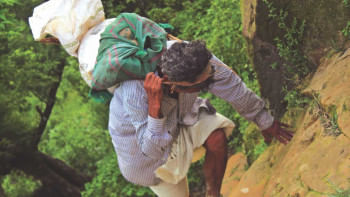
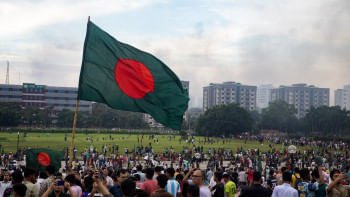


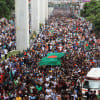

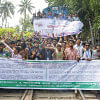
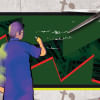
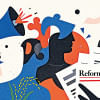

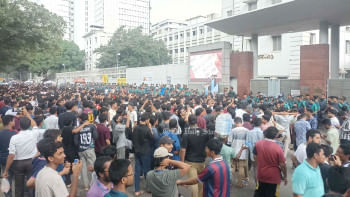
Comments